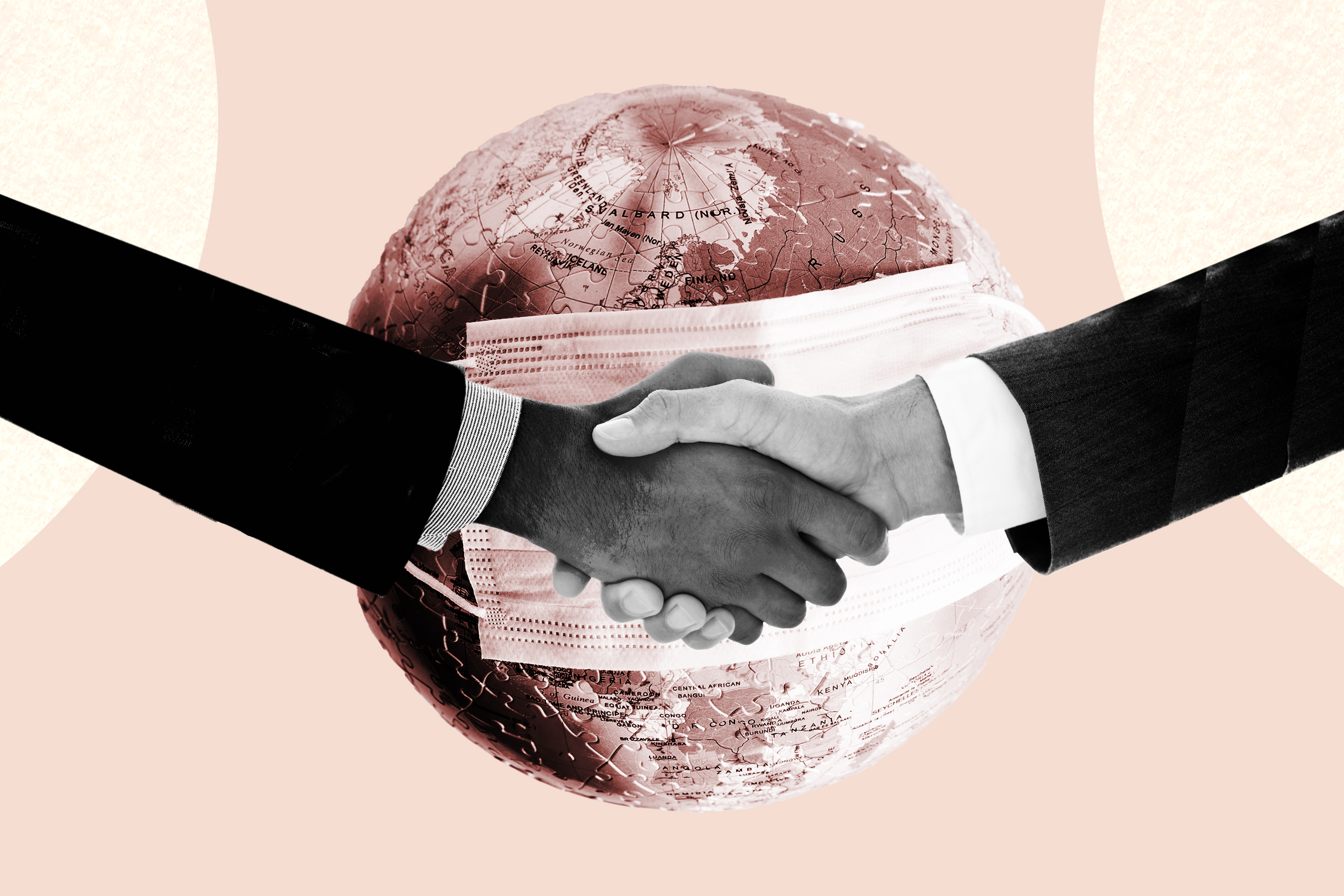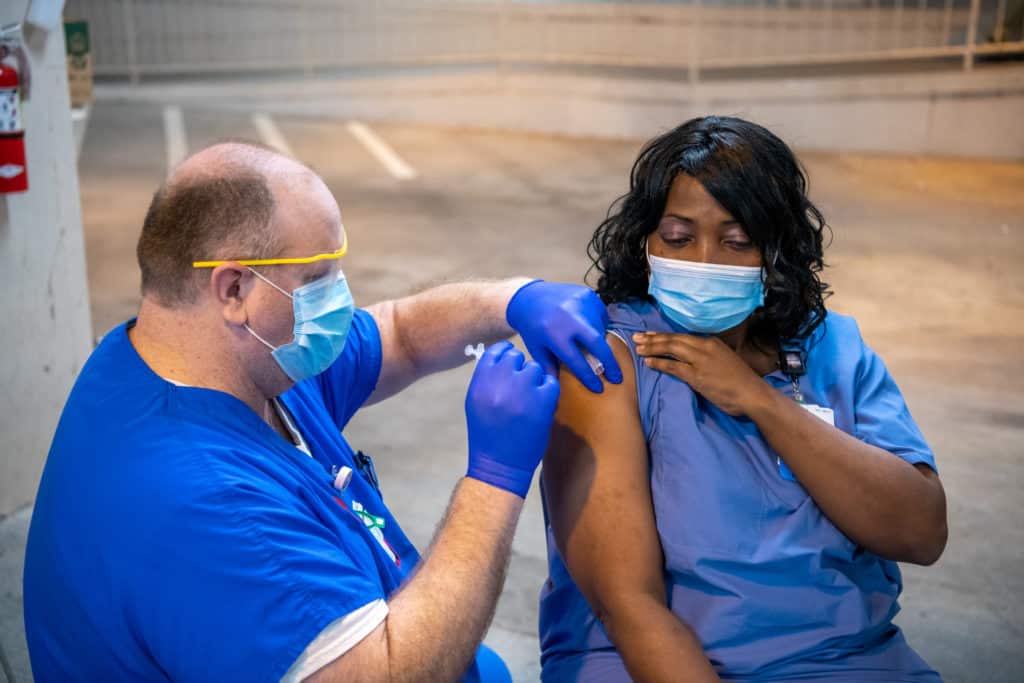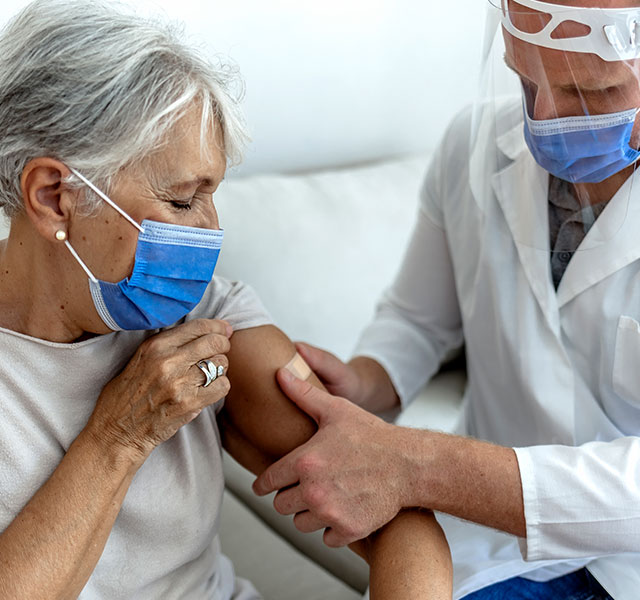From Crisis to Collaboration: Lessons in Unity from COVID-19
The COVID-19 pandemic has been a defining moment, underscoring the pivotal role of science in combating a global health crisis. Central to this battle has been the remarkable stride in vaccine development. Within an unprecedented timeframe, science triumphed, delivering vaccines that swiftly emerged as a beacon of hope in the fight against the virus. The rapid creation, rigorous testing, and mass production of these vaccines represent a testament to human achievement and scientific prowess.
RELATED ARTICLE :COVID-19 has tested us. Will we be ready for the next pandemic?

However, this triumph wasn’t devoid of challenges. Amidst the scientific breakthroughs, navigating public health responses encountered numerous hurdles. One such challenge was the clash between scientific recommendations and governmental policies. Approximately 30 states enacted laws that constrained health authorities from implementing protective measures without explicit approval from state legislators. This created a complex landscape where the struggle between individual liberties and the collective need for protection became evident.
As someone deeply embedded in the healthcare landscape, serving as an attending physician and actively advising on vaccine construction, the pandemic unfolded as a saga of uncertainties. Decisions, made in real-time and often based on incomplete information, showcased the inherent complexities in dealing with a rapidly evolving crisis. Conflicting recommendations occasionally emerged, eroding public trust in the institutions tasked with safeguarding the population.
Nevertheless, the pandemic provided invaluable lessons, underscoring the urgency of global vaccination efforts. Despite the remarkable progress achieved in vaccine development, significant portions of the global population remain unvaccinated. This critical gap in coverage amplifies the interconnectedness of global health and the imperative to extend vaccine access worldwide. The call for global solidarity in vaccination efforts isn’t just a matter of altruism; it’s a prerequisite for collective safety.

The ever-evolving nature of scientific understanding and recommendations was another pivotal lesson. Throughout the pandemic, guidance on preventive measures evolved as new insights about the virus emerged. The importance of communicating that recommendations are contingent upon the available evidence and subject to change as knowledge advances became increasingly apparent. Transparency in conveying the fluidity of scientific knowledge is paramount to fostering public confidence.
Amidst the challenges posed by misinformation, local initiatives emerged as beacons of hope. The Black Doctors COVID-19 Consortium, for instance, exemplified the potential of grassroots efforts in combating misinformation and building trust within communities skeptical of vaccination. These initiatives underscore the importance of community engagement and trust-building in promoting public health measures.
The pandemic also unraveled a concerning partisan divide in vaccination rates, shedding light on the necessity to dissociate political affiliations from public health imperatives. This ideological division underscored the need to prioritize public health over political agendas to save lives.

Protecting the vulnerable emerged as a crucial focus. Older adults, individuals with multiple health issues, the immunocompromised, and pregnant women were identified as particularly susceptible groups. Efforts in providing tailored protection and booster doses to these demographics remain a priority as the virus continues to circulate.

Balancing pandemic control measures with minimizing societal disruptions emerged as a recurring theme. The early strategy of limiting human-to-human contact, while effective in curbing the virus, carried profound societal impacts. Children, in particular, bore the brunt, experiencing disruptions in education and socialization. Striking a balance between mitigating the virus’s spread and addressing these societal repercussions has been a complex challenge.
Nevertheless, amidst the turbulence, instances of remarkable collaborative efforts shone through. Operation Warp Speed, an unparalleled collaboration between various stakeholders, yielded two effective vaccines within an astonishingly short span. This historic endeavor demonstrated the strength of unified action in the face of adversity.
MORE RESEARCHED ARTICLE :Gavi’s Immunization Milestones, A Global Health Vanguard
Conclusion
The COVID-19 pandemic has been a crucible, testing humanity’s resilience and underscoring the critical role of science in crisis mitigation. It emphasized the necessity of transparent communication, global solidarity in vaccination, and the imperative of prioritizing public health over political divides. As we navigate the aftermath of this crisis, these lessons serve as guiding beacons, illuminating the path toward a more prepared and united response to future challenges.